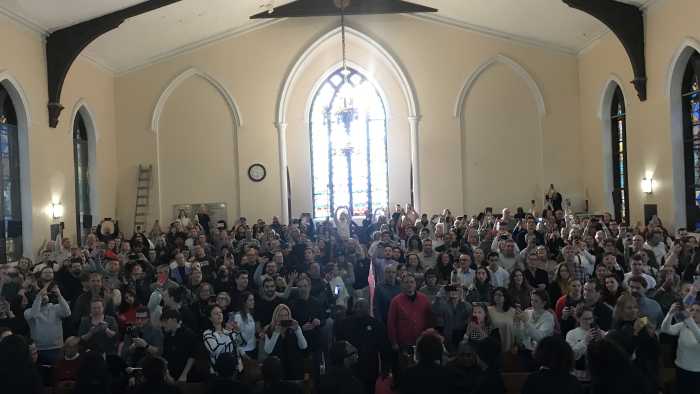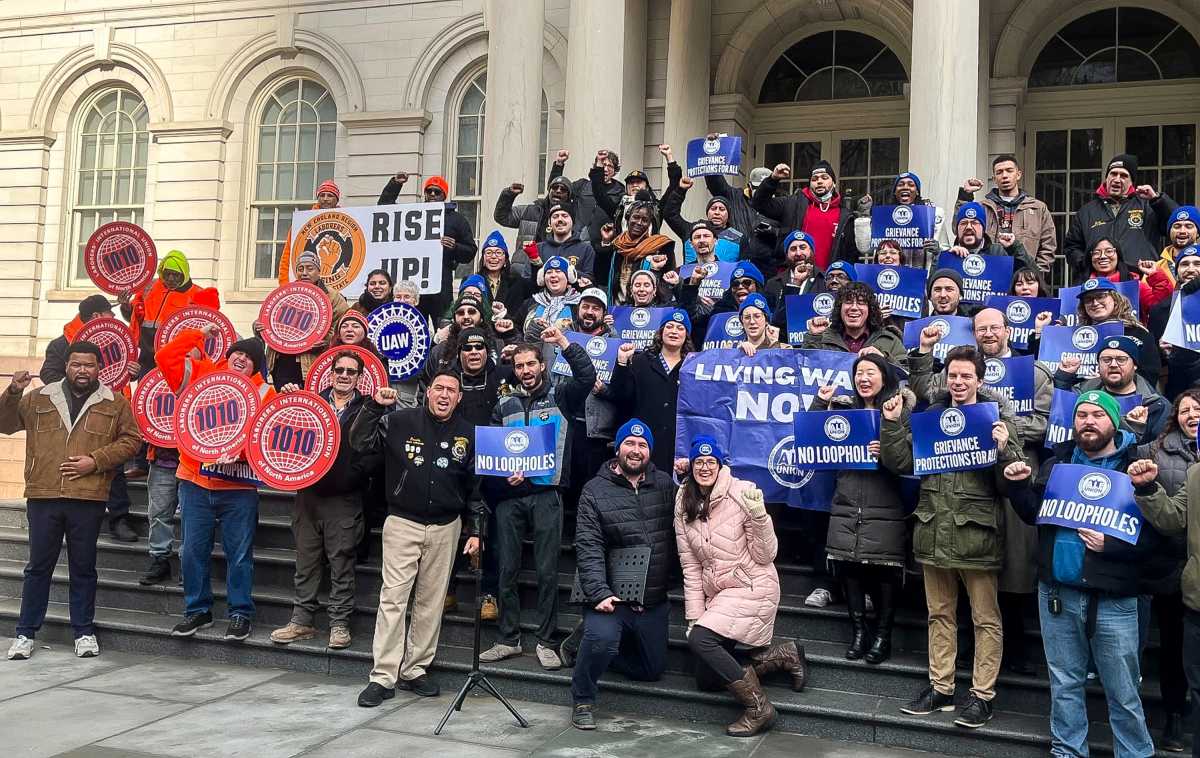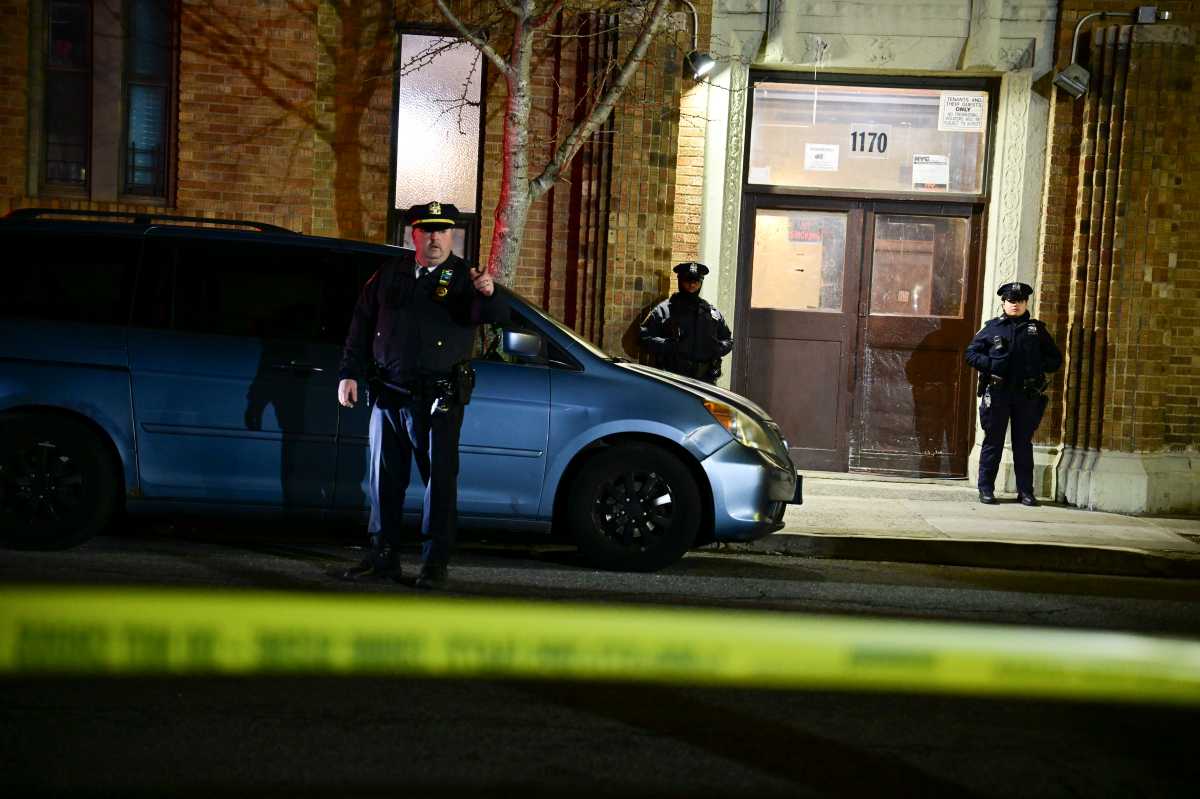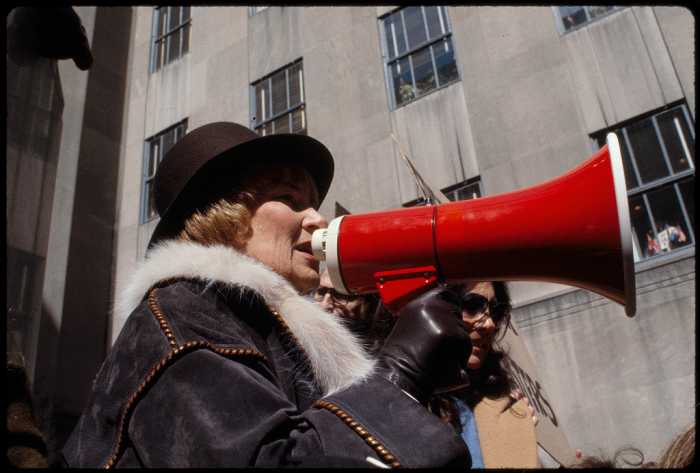By Willa Paskin
On Thursday morning, as Barbara Mayfield was leaving her home at 7 Dutch St., a five-story loft building in the Financial District, she found a flier under her door. It exhorted her to attend a rally on the steps of City Hall to protest “phony demolition.” Mayfield knew what to do: she canceled her afternoon plans, called her upstairs neighbor, Harumi Ando, and headed right over, just a few blocks away, to add her voice to the chorus of tenants protesting an increasingly popular eviction tactic.
Mayfield and the other three tenants of 7 Dutch St. find themselves in a predicament familiar to scores of other residents around the city: they face eviction because their landlords are demolishing their buildings, a right owners retain under the Rent Stabilization Law. In these cases, however, demolition does not necessarily mean the razing of the entire property, but can mean only a gut rehab that will not alter exterior walls and will leave interior support beams untouched.
About 70 people, including Mayfield and Ando, gathered on the steps of City Hall, waving colorful signs that read, “Renovation does not equal demolition,” to support state and city bills proposed by state Assemblymember Deborah Glick and Councilmember Rosie Mendez to halt this “phony demolition.” “Owners are seeking to fashion their own definition of demolition that does not pass the laugh test,” Glick decried to the crowd, which included residents not only of 7 Dutch St., but also 131 Duane St. in Tribeca.
Seven Dutch St. was purchased in July 2001 by Michael Greenburger, an associate director of acquisitions for Time Equities, a real estate firm, from the Dutch Reform Church, which had owned the site for 200 years. Mayfield, a teacher and former television producer, who has been living there for over 20 years, is the building “newcomer.” She remembers that when she first moved in, “the most convenient way to do my grocery shopping was to take the PATH train to New Jersey.”
Toward the end of 2001, Greenburger sought to evict Ando, a photographer who has lived in the top floor loft since 1975, on the grounds that he would need the apartment for his own personal use. Under the Rent Stabilization Law, landlords can legally remove tenants younger than 62 to use the space for themselves, though they must provide an equivalent living space or a compensatory sum. At the time that Greenburger first contacted Ando about leaving, Harumi was 59.
Ando recalled Greenburger calling him up to say, “Well this thing happened and I thought you may want to move out,” meaning 9/11. “It was Christmas!” Ando said. He fought the eviction for the next three years, at one point declaring bankruptcy, and ultimately managed to stave Greenburger off because his 62nd birthday was fast approaching.
But in July 2005 Ando and the other tenants received a notice that they were being evicted because the building was to be demolished. This demolition would not touch the exterior, but, according to the permit filed in June 2005, consist of a “gut rehabilitation of entire building. New joist walls, stairway, new partitions, kitchens and bathrooms.” The tenants of 7 Dutch St. and Greenburger are still awaiting a decision from the state Division of Housing and Community Relations about whether the demolition can proceed. If D.H.C.R. rules against the tenants, Mayfield’s lawyer, Arthur Rhine, said the case will go to court. “There is no way we would accept an adverse decision,” he said.
Greenburger requested that questions from Downtown Express be e-mailed to him and then did not respond to the e-mail.
The fate of Dutch St. is closely tied to the fortunes of 131 Duane St., a loft building above City Hall restaurant, that is regarded by many as the test-case for the viability of this “phony demolition.” Duane Street Realty owns the building. Henry Meer, a chef and the owner of City Hall, is one of its partners. The company filed to evict all the tenants of this five-story, eight-loft building on the grounds of demolition. According to tenant Donna Dennis, the demolition plans would not alter the exterior walls and would leave some interior beams untouched. City Hall restaurant would even remain open throughout the construction. “Demolish means you can stand in the basement and look at the sky. It doesn’t mean the restaurant on the ground floor won’t close for a day,” Bill Hall, a member of Lower Manhattan Loft Tenants said.
Kara Rakowski, a partner at Belkin Burden Wenig & Goldman, the firm representing Meer and the other owners of 131 Duane St., stressed that the proposed demolition is both entirely legal and “definitely in the spirit of the law.” Rakowski also pointed out that because 131 Duane St. is in the Tribeca South Historic district, the owners are not permitted to alter the façade of the building, which necessarily limits the scope of any demolition that they propose. While the tenants of 131 Duane argue that this limitation makes any demolition of the site “phony,” as the exterior walls will remain standing, Rakowski suggested that her clients are proposing to demolish all that they can. Having to keep the façade should not automatically vanquish her clients’ legal right to demolish other parts of a building that they own.
Currently, the tenants and owners of 131 Duane St. are awaiting D.H.C.R.’s ruling on an appeal filed by the residents. DHCR first ruled on the case in May 2005, siding with the landlords and granting them permission to evict the tenants. The residents then appealed. If they should lose, Bob Petrucci, a housing attorney who represents the tenants of 131 Duane St., said the case will go to court.
Unless the legislation proposed by Glick has become law before then. Glick’s bill, A-10944, defines demolition as the complete razing of a building including all exterior walls. If this legislation passes it will greatly increase the chance that residents of buildings like 131 Duane St. and 7 Dutch St. will be able to remain in their homes. Dennis sighed, “It could really change things for us.”
WWW Downtown Express


































